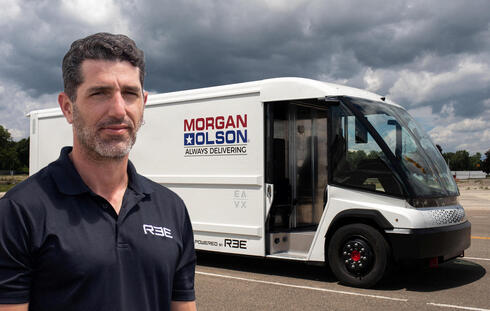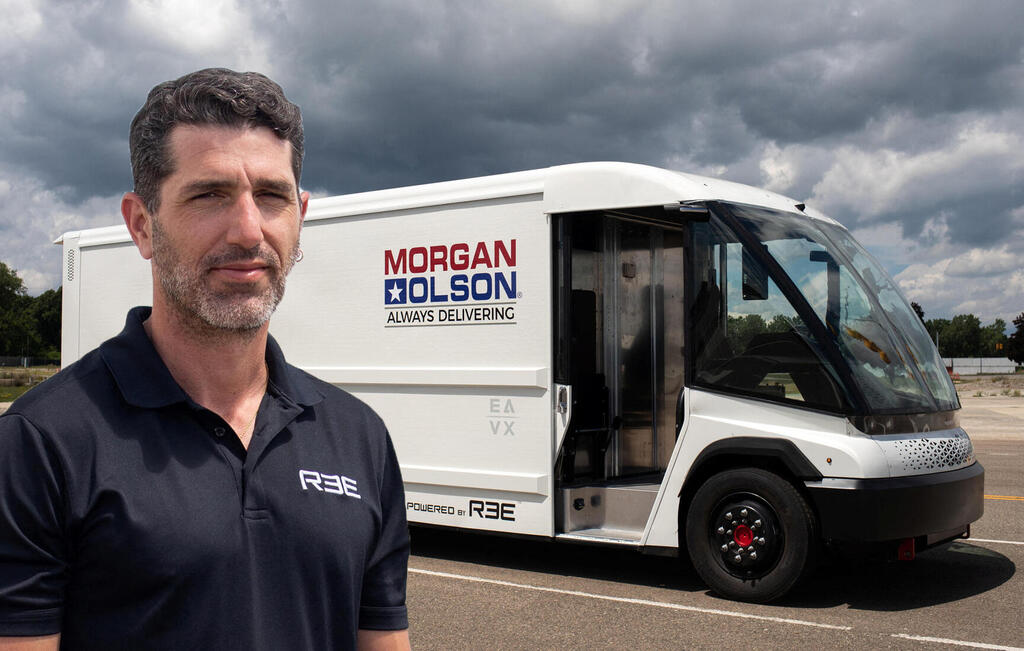
From $3.1 billion to $25 million: REE Automotive on the brink
The once-hyped Israeli EV startup is running out of road after warning it may not survive the next 12 months.
Israeli electric vehicle company REE Automotive published last Thursday its financial reports on the Nasdaq. The company’s 2024 performance is hardly cause for optimism: REE posted an adjusted net loss of $70.3 million, an 18% improvement over its $98.3 million loss in 2023, but still a figure that threatens the company’s viability.
This isn’t just theoretical. The company’s filing included a going concern warning, stating that “As part of our ongoing financial review, due to the recent changes in the macroeconomic environment and tariff situation negatively affecting our ability to bring our P7 to the market as planned and affecting our ability to raise debt, which directly impact our revenue forecast, management has determined that there is a substantial doubt about our ability to continue as a going concern for the next twelve months.” In other words, REE is warning that it may not survive the next 12 months.
Following the news, the company’s stock over 70% on Thursday, taking it below the $1 mark and giving REE a market cap of a mere $25 million.
According to REE, global shifts, particularly U.S. President Donald Trump’s trade policies have severely impacted the automotive industry and forced the company to halt all production plans. The company now says it will recalculate its route, focus on cost reduction and customer needs, and restructure operations accordingly.
Founded in 2011 by Daniel Barel, Gilad Wolf, and Ahishay Sardes, REE Automotive began its journey not as a carmaker but as a wheel technology company under the name SoftWheel. Originally developed to assist people with mobility impairments, Softwheel's innovation was to place key vehicle components, such as the engine and suspension, inside the wheel itself. This design freed up space in the vehicle and opened the door to new engineering possibilities.
In 2019, the company rebranded as REE, shifting its focus to electric vehicle platforms. Rather than building entire cars, REE designs a modular “skateboard” platform that integrates the drivetrain, wheels, and chassis, a base that automakers can customize with their own upper vehicle designs. The key benefit, particularly for commercial vehicles, is space: by embedding the motor in the wheels, REE’s platform allows more room for cargo.
Between 2020 and 2021, REE attracted considerable attention. Japanese auto parts giant KYB (part of Kia), Indian automaker Mahindra, and Mitsubishi Corporation reportedly formed partnerships or invested. Toyota was also said to be involved. On the Israeli side, investors included notable figures such as Gil Agmon and Ziv Aviram.
In 2021, REE announced plans to go public via a SPAC merger with X10 Capital Venture Acquisition Corp, valuing the company at $3.1 billion pre-money and $3.6 billion post-money. At the time, investor excitement around EV startups was at its peak.
But the tide soon turned. After the COVID-19 pandemic, global automakers pulled back from outsourcing and began conserving cash. This retreat hit independent EV startups hard. Companies like Arrival, Canoo, Lordstown Motors, and ELMS, all once backed by major automakers, struggled or collapsed. Without sustained strategic support or large customers, most couldn’t survive.
REE, too, saw its share price plunge, down 80% by 2022. That year, it unveiled a prototype platform in the U.S. and U.K., but like its peers, it lacked a major automaker partner, institutional buyers, or a clear production pathway. The commercial EV segment, especially delivery vans, proved brutally competitive: the vehicles endure harsh conditions, and fleet buyers expect high durability. A dissatisfied customer with a fleet of 1,000 vans is far more dangerous than an unhappy individual car buyer.
Still, REE has achieved several milestones. In January 2024, the company received U.S. regulatory approval to market its 7P commercial vehicle, which uses drive-by-wire technology, replacing traditional mechanical linkages with electronic controls. That March, REE announced a collaboration with Airbus’s innovation arm, which selected its technology for a research and demonstration project.
In March 2024, the company also reported a $50 million order backlog, a U.S.–Canada dealer network of 66 outlets, and a distribution deal with Penske, one of America’s largest automotive groups.
Despite the accolades and partnerships, REE’s future remains precarious. It laid off staff in 2023 and hinted at further cuts in last week’s report. To survive, the company must secure institutional buyers, long-term orders, and sustainable production capacity.
But complicating that path is Trump’s newly reinstated tariff regime, which imposes protective duties on imported auto parts. While aimed at boosting domestic production, the policy may ironically make U.S.-assembled EVs more expensive, further discouraging investment in unproven platforms. And with economic uncertainty mounting, large fleet operators appear increasingly reluctant to bet on small, complex electric vehicle manufacturers without major OEM backing.














